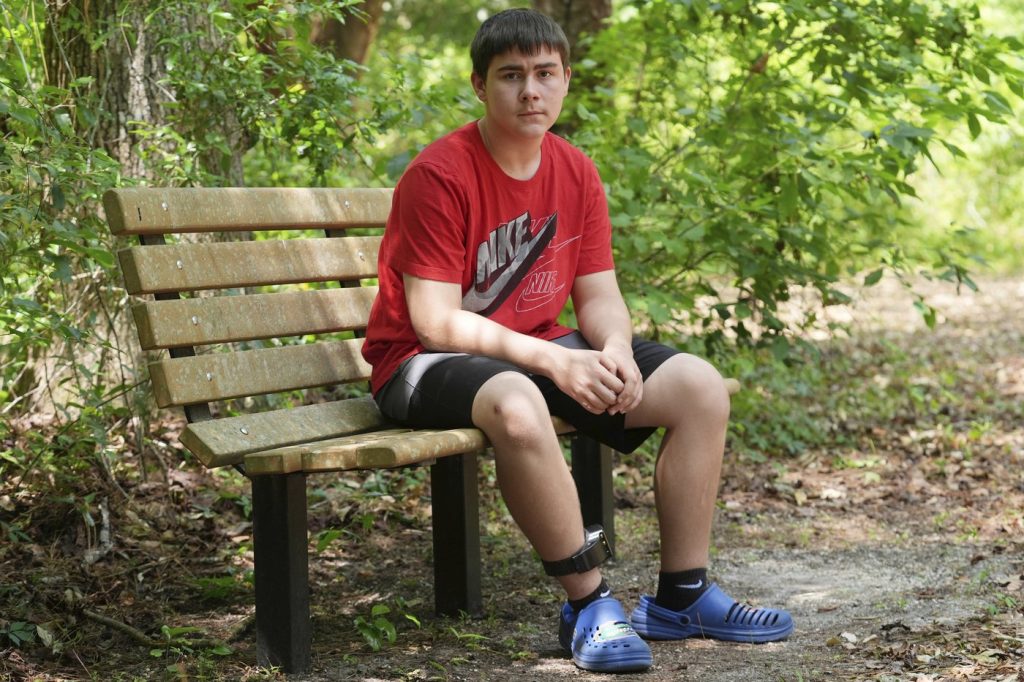In Gainesville, Florida, 15-year-old Cayden Gillespie faced a challenging educational environment while incarcerated. His freedom hinged on completing three school assignments each day, but the transition to virtual schooling proved particularly difficult for him and others in Florida's juvenile detention system. Cayden struggled with understanding his online pre-algebra tests, leading to frustration when he repeatedly failed. Lacking direct support from math teachers, he experienced a moment of crisis, throwing his desk in a fit of rage when help was unavailable.
Florida, which must provide education for incarcerated youth, has been trying a new approach since July 2024. They implemented the Florida Virtual School, one of the largest online schooling systems in the U.S., for youths aged 10 to 21 held in residential commitment centers. This was amid evidence suggesting that online learning did not benefit many students during the COVID-19 pandemic. The intention behind adopting this model was to maintain rigorous educational standards and ease reintegration into public schools after release. However, it appears that the reality has been quite different, with students struggling to learn, leading to behaviors that often extend their time in detention.
With the shift to online learning, in-person teaching resources were drastically reduced. Institutions ceased to provide dedicated educators for every subject, leaving only adult supervisors who often lacked the expertise to assist with the academic material. Many students reported difficulties accessing and understanding their online assignments, exacerbated by the absence of sufficient instructional support, as highlighted in letters written to lawmakers.
Cayden's journey into the juvenile justice system began when he and his parents decided to press charges against him for committing theft and credit card fraud. His parents believed that a short stint in juvenile detention might help him regain control. Instead, upon arriving at a residential center after waiting in detention for months, Cayden learned that the program would require a far longer commitment than expected—between six to nine months—sending him into a panic.
His daily life in custody involved strict routines, including waking up early and enduring limited privacy. Each youth had their own cell with inadequate privacy accommodations, and communication with family was tightly monitored. To find solace, Cayden often resorted to creative expression, writing stories. However, the structure of the virtual schooling, which lacked special education supports, added significantly to his stress. Previously, he had received tailored instruction from in-person teachers, but this support vanished with the transition to online classes.
Cayden and his fellow detainees voiced frustration regarding the virtual program, noting a lack of responsiveness from online teachers. Despite having a special education plan that entitled him to assistive services, Cayden found himself without the needed help after the switch to virtual learning. The situation escalated when his inability to perform in the online setting led to disciplinary actions, further delaying his release.
The failure of the online learning initiative is evident in the experiences of other youths in Florida’s residential centers. Many reported similar issues, indicating widespread dissatisfaction with the virtual curriculum. Some detainees even faced longer sentences due to behavioral issues arising from the academic frustrations brought on by the impractical online format.
The difficulties encountered in the learning environment have made transitions back to the community challenging for many students. After spending 19 months detained, Cayden was finally released. His family faced hurdles in trying to enroll him back in school due to delays and restrictions imposed by the Florida Virtual School, which claimed to offer transition support that the Gillespie family never received.
In conclusion, the experience of Cayden Gillespie and other young detainees in Florida illustrates significant challenges posed by the implementation of virtual schooling in juvenile detention facilities. The program, intended to streamline education and support reintegration, has largely fallen short, raising concerns over the long-term effects on these youths' academic and behavioral outcomes.











